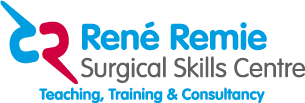General information
Training modules on offer
Module A; Microsurgical Techniques
- blood vessel anastomoses (ETE, ETS, interposition grafts etc.)
- nerve repairs
- skin flap preparation
- other techniques of particular interest to participants by agreement before or during the module.
Module B; Experimental Research Techniques
- pharmacology models, for infusion and blood sampling, temporary occlusion stroke models, for transplantation models. Focal and global ischemia models in rats and mice. Cardio-vascular models (MI and TAC) or any others specifically relevant to your needs
- pharmacokinetic models, for infusion and blood sampling from arteries, veins, bile duct, gut or any other places relevant to your needs
- toxicology models, for a single dose, multiple-dose acute and chronic study designs and performance
- different techniques of particular interest to participants by agreement before or during the module
Module C; Radio-telemetry in small rodents
Radio-telemetry is a low postsurgical stress method to measure physiological parameters such as heart rate, electrocardiogram (ECG), blood pressure (BP), ventricular pressures (LVP and RVP) blood flow, acceleration and body temperature in freely moving laboratory animals. The telemetric unit is placed under anaesthesia in the peritoneal cavity or subcutaneously in the animal. Various sensors and or electrodes, e.g. ECG, EMG, BP, blood flow, blood glucose, body temperature connect to the unit. The device sends a frequency-modulated signal to the receiver that, depending on the system, can be placed underneath the animal’s cage, in the holding room or in the animal holding facility in the case of free-living larger animals. Through a data acquisition system, the raw data are converted and stored in the computer. Radiotelemetry data are very reliable. There is no influence of anaesthetics, handling or restraint. Some people even dare to say that telemetry is the “Truth”. It indeed is an excellent form of refinement, but only if the surgical implantation is optimal.
If appropriate for you this can include;
- pharmacology models, for measuring ECG, EEG, EMG, blood pressure or other pressures (LVP and RVP, intra-thoracic pressure) or any others specifically relevant to your needs
- toxicology models, for studying QT-prolongation in a chronic study design.
- other techniques by agreement before or during the module
Here you will find the program for Module C, 3-days and the program for Module C, 5-days
NB, Your own individual needs can be satisfied during either module. Correspond with René Remie by email, r.remie@rrssc.eu to discuss any specific needs.
We also offer Dedicated Programs, click here to see what we have in store for you.
